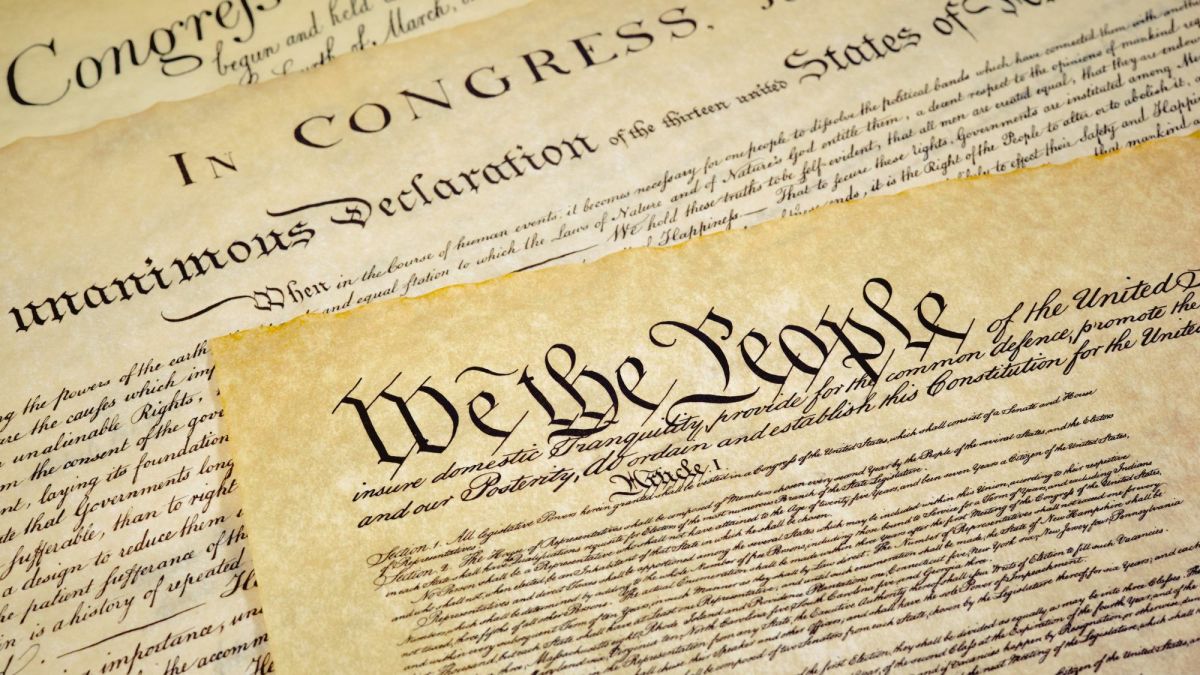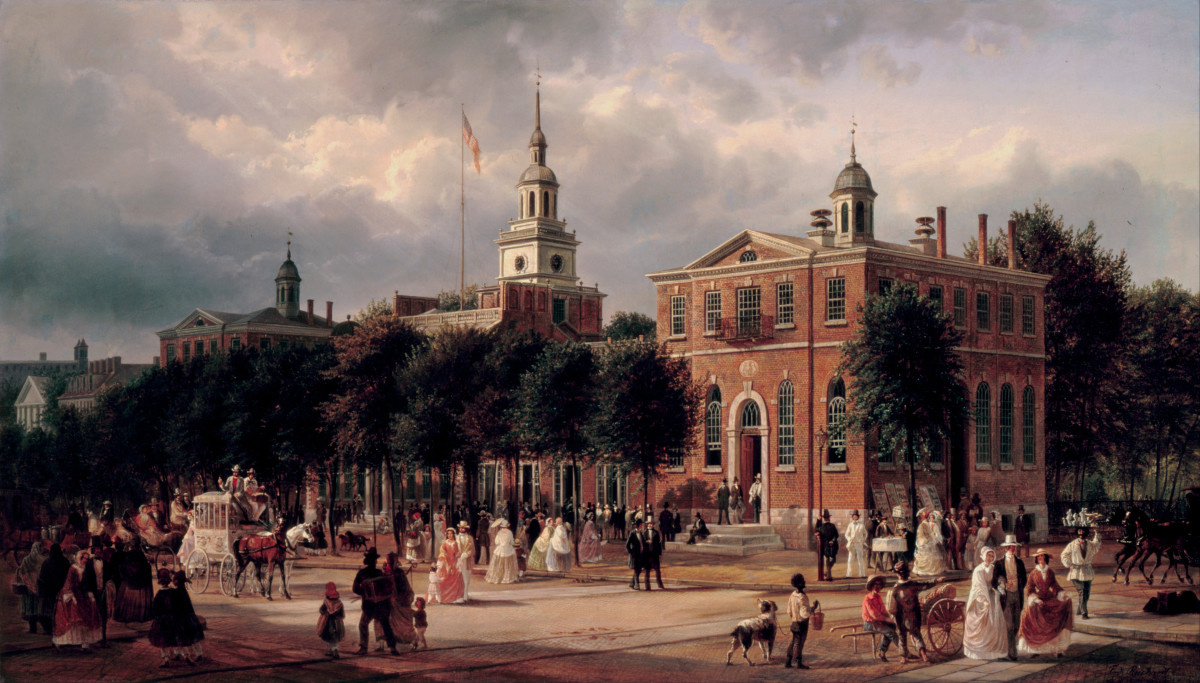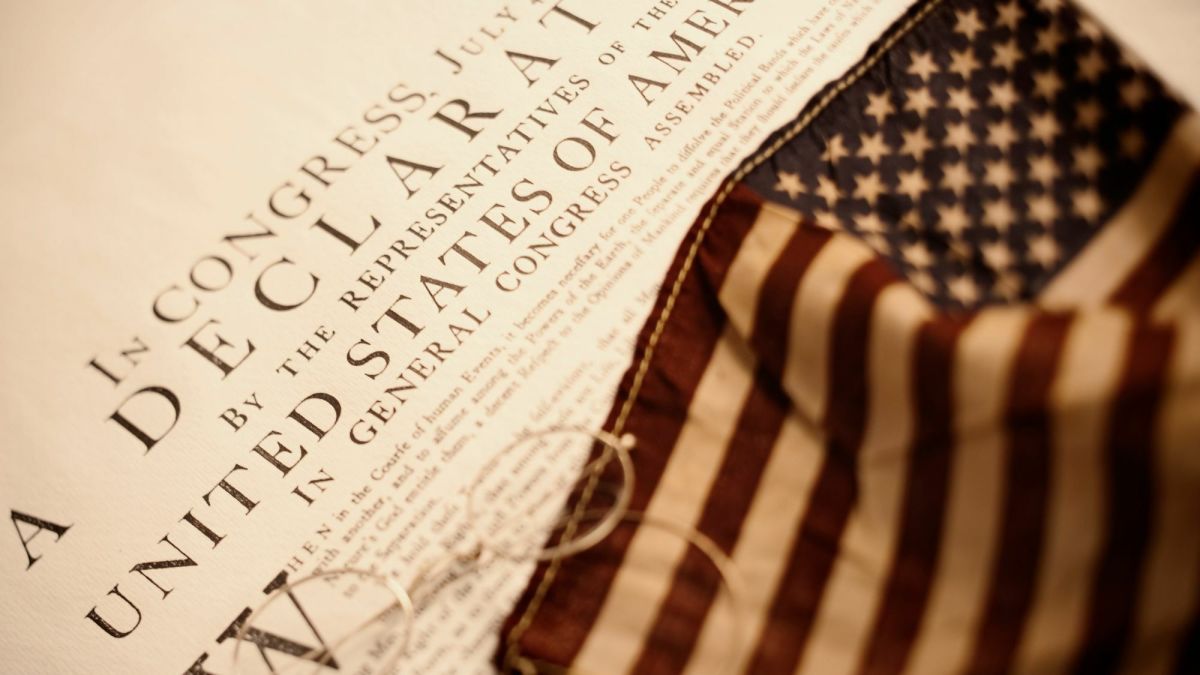A Declaration of Out-dependence - What Happened to Self-reliance?
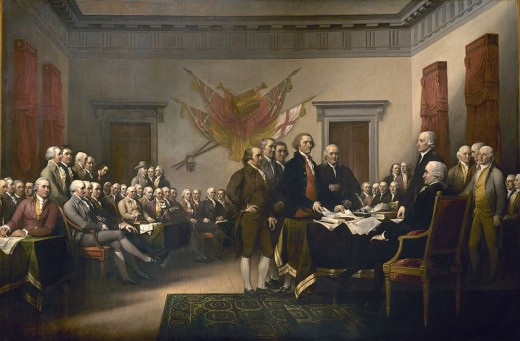
When founding fathers of the USA Signed the Declaration of Independence they must have known that their lives were about to change.
They knew separation from Britain would bring hardship, war, death and suffering to many.
They also knew, that after the breakaway, they would be in danger. Even if independence could be accomplished without war, they would not only govern themselves, but they would pretty much provide for themselves. Freedom wasn't going to be free; it would cost a lot.
For a long time, people understood the deeper basic meaning of INdependence.
They had to depend on what was IN them, their own skills, their own knowledge, their familial and community cooperation and, most of all, their own hands-on labor, to self-produce most of their everyday needs.
America would have to be self-sufficient through its earliest years, and that kind of independence made it stronger as the country grew.
Everything you need
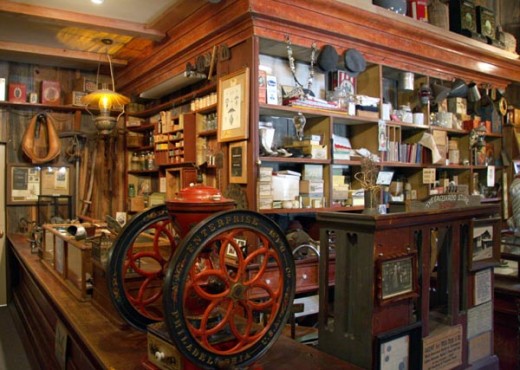
Pioneer Spirit
As pioneers established towns on the expanding frontier, a general store may have stocked some of the necessary tools, materials and staple food items they needed, but people did most of the building and "processing" themselves.
But now it seems --somewhere along the line-- we must have signed a Declaration of Out-dependence.
Wherever you live today, especially in the U.S., there is access to inexpensive power, public services, a well as wide variety of inexpensive, processed and prepared foods,chemically formulated cleaning and personal-care products, cheaply manufactured tools, ready-made clothing, furniture and other consumer goods in a dizzying variety of choices.
We no longer make our own stuff. Increasingly, the stuff is made somewhere far away from where we live, and it is mostly made, not to last, but to be thrown away and replaced again and again.
Having it All
We have become accustomed to having a huge selection of cheap mass produced goods available to us at a moment's notice.
You can even buy a modular home to set up within a few days with all of the fixtures in place. It won't last as long as the home your great-grandfather built, but what does? In earlier days , homes were meant to last a lifetime or more.
Do you need a special gift or a pair of shoes to match a new outfit today? You can find it at the local mall. Need a special battery for an indispensable gadget? Order it on line and get in in a couple of days. If it costs more than you have in your wallet, you can always charge it.
Beyond such things as food and consumer products, we are also dependent on someone to provide energy.
We have become big consumers of electricity and fuel. We depend on others to provide systems for communication, transportation and even entertainment. Most of us even depend on someone to provide us with water.
Air is still free, but If things continue in the same manner, people may someday be buying disposable plastic air tanks so we can breathe (and pay for) clean air.
Only few generations ago, our not so distant ancestors self-produced much of what they needed or wanted. Who was it that signed us on to the idea that we should pay dearly for someone else to do everything for us?
What happened to the idea that "do it yourself" was the practical way to save?
The Founders vote for INdependence. from the miniseries "John Adams"
Making your own Stuff.
Today's troubled economy is actually making some people to think about what they can do without, or what they can still do for themselves.
Even modest homes, not so long ago, had a pantry or a cellar for storing self-preserved food. Fruits, and vegetables from a home plot were "put up" in jars, or dried for later use.
Often that same small house might have a sewing room where curtains and quilts, and clothing were made.
Sewing , knitting and needlework might be a hobby for some-- not the necessity it once was. Today, a few people have gardens to grow vegetables. Not too many people do canning -- a lot of people don't even cook any more.
Look at your supermarket meat counter, chances are more than half of it is filled with prepared and re-heatable entrees that are prepared in a factory hundreds, even thousands of miles away. They are packaged in plastic containers, poly bags, cardboard cartons and over-wrapped with plastic film.
If you buy them, you are bringing home a lot of paper and plastic trash to toss, along with a long list of additives, preservatives, and other questionable ingredients. The price people pay for these processed foods is often MUCH higher than they would have paid to make them, from scratch. How did we get used to this? Who signed?
John H. of the big signature.

Time to re-learn?
It might not be a bad idea to start teaching some basic skills to ourselves and our children.
It might be time to relearn cooking, or carpentry. There might come a time when blacksmithing and metal-working could come in handy. Learning to repair or make clothing, might be a good skill to have.
I recently heard a statistic about the Great depression of the 1930s that said 80% of the U.S. population lived on farms and in small towns at that time, and only 20% in cities.
Those stats have now flipped with the 80% living in cities. Few people still have the experience of basic living skills our great-grandparents had.
Even those who fled the ruined farmlands of the dust-bowl in the depression years-- still had their experience and knowledge of how do do things for themselves. They built on those homely skills with hard work.
My grandfather knew how to build a house without power tools. My other grandfather could shoe a horse, build a bicycle and repair pocket watches. He built a multi-faced street clock, by hand. He could also re-sole shoes and play several musical instruments.
If times get tougher here, a lot of people will have no clue how to become truly independent again.
As for the Declaration of Out-dependence, John Hancock would never have put his pen to it.
Declaration of OUTdependence --of the Fifty United States of America
When, in the course of human events, it becomes necessary for people to strengthen the economic and acquisitive bonds which have allowed them to compete with one another in the acquisition of stuff, and to assume opportunity to which they are entitled, requires that they declare causes which impel them to be dependent on others for their needs and desires.
We hold these truths to be self-evident, that all men are equally endowed with certain unalienable rights, that among these are life with all the modern conveniences, liberty to buy anything at any time with credit, and the pursuit of Happyburgers.
That to secure these rights, we depend on plenty of fuel for energy, cheap labor from economically disadvantaged countries to produce goods, and the Almighty executive, legislative and judicial entities to provide health and social services [as well as economic bailouts when we fail].
For these needs and wants from the consent of the governed, we pledge our total dependence on China, big box stores, big business and big government forever and ever,amen.
And for the support of this declaration, with a firm reliance on the protection of the government, we mutually pledge to give up our lives, our fortunes and our sacred honor.
Another hub on Self-responsibility
- Investing in Yourself Pays Dividends
Maybe you don't have investment money right now, but there are still possibilities you can buy into which will continue to grow in value. Some will make your life better now and give you a sense of security. ...

